The Trump administration has escalated its attacks on US research universities by announcing that it will begin revoking visas for Chinese students. If fully implemented, the new policy would have a significant impact on the research community, with more than 277,000 Chinese students enrolled at US universities in the 2023–2024 academic year, according annual data compiled by the Institute of International Education. The figure represents almost a quarter of the international students studying in the US.
‘Under President Trump’s leadership, the US State Department will work with the Department of Homeland Security to aggressively revoke visas for Chinese students, including those with connections to the Chinese Communist Party or studying in critical fields,’ said Secretary of State Marco Rubio in a 28 May statement. ‘We will also revise visa criteria to enhance scrutiny of all future visa applications from the People’s Republic of China and Hong Kong,’ he added.
The announcement came shortly after China had criticised another new Trump administration policy that halted all new student visa interviews at US embassies and consulates abroad.
On 28 May, foreign ministry spokesperson Mao Ning said China ‘firmly opposes [the policy] and has protested to the US over the decision.’ She called the plan to cancel the visas of students from China ‘fully unjustified’ and warned that it ‘will ‘further damage the image and reputation of the US itself’.
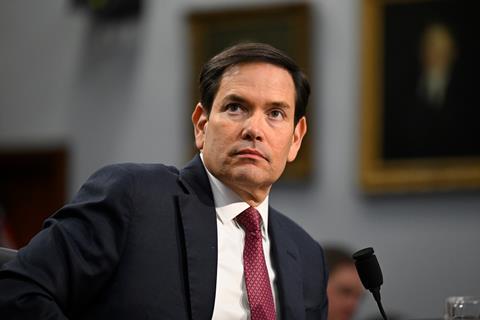
All of this is happening against the backdrop of the Trump administration’s escalating feud with Harvard University, which culminated in it blocking the institution from enrolling international students and announcing that existing foreign students would have to transfer or lose their legal status to reside in the US. Academic advocacy groups like NAFSA: Association of International Educators and the Association of American Universities immediately issued statements of opposition.
Harvard very quickly hit back with a lawsuit against the administration, and just hours later a federal judge issued a temporary restraining order preventing the administration from implementing the policy.
Another ‘blunt instrument’
Meanwhile, Rubio’s latest announcement appears to achieve the same goal as legislation that Republican politicians introduced in both chambers of Congress back in March, while avoiding congressional oversight. The bill in question, which created significant uproar in the US research community, would block all Chinese nationals from receiving student visas. That measure has stalled for now, having been referred to the House and Senate Judiciary committees.
‘This appears to be yet another “blunt instrument” approach to a concern,’ states Jeremy Berg, a biochemist who served as director of the National Institute of General Medical Sciences for almost eight years. ‘Some of the most talented and productive students in many chemistry departments are from China and they contribute to research.’
‘Some of these students have remained in the US to contribute to the nation’s prosperity in the long term,’ Berg continues. ‘The damage to America both short term and long term to this policy could be considerable.’
‘The outcome is far from clear’
Neal Lane, a physicist who served as science adviser to former president Bill Clinton and previously as director of the US National Science Foundation, points out that these latest efforts by the administration to prevent international talent from coming to the US, is inconsistent with its stated objectives of maintaining the country’s technological leadership and ensuring that its citizens reap the benefits of scientific advances.
‘America’s leadership in [science and technology] stems, in large part, from the US being an attractive place to study and build a career. The administration’s discriminatory policies will only harm the country,’ Lane warns. ‘The administration’s discriminatory policies will severely damage universities and accelerate America’s decline in most fields of science.’
China, already strong in chemistry and other physical sciences, will be the direct beneficiary, according to Lane. While the courts have so far delayed implementation of many of the administration’s attempts to reduce international student numbers, he says ‘the outcome is far from clear’.
Kim Montgomery, director of international affairs at the American Association for the Advancement of Science, notes that the concept of setting guardrails around critical research fields is not new. ‘Our concern is that the US will send a signal that it is not the place for international students to go to college and graduate school,’ she states. ‘This would change the decades-old pattern of the US being the most popular destination for international students, many of whom stay after their studies and contribute significantly to the US economy.’
’We risk other countries reaping the economic benefits as a result, which would have a damaging effect on the future strength of US competitiveness,’ Montgomery adds.





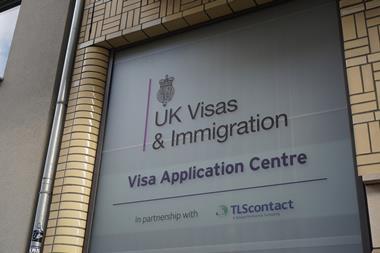
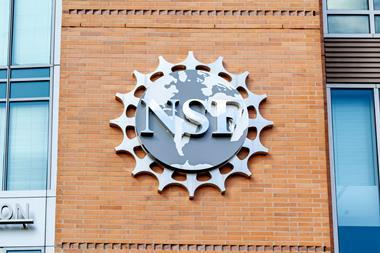

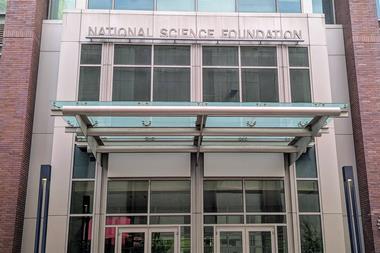

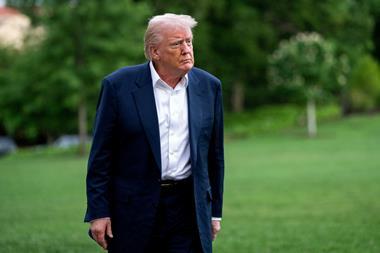






No comments yet